Caring our way through a crisis
Following on from our interviews with alumni nurses, we meet two medical graduates who offer an insight into their work and the impact of the coronavirus pandemic on their daily roles.
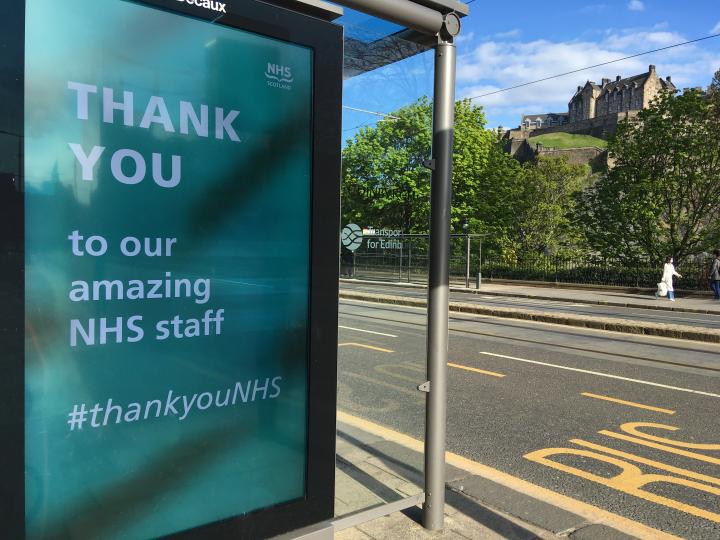
Aidan Devlin (BSc (Hons Pharmacology) 2003, MBChB 2006) is a Consultant Anaesthetist, King’s College Hospital, London
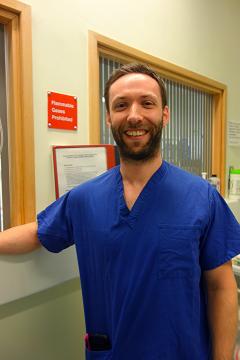
Who or what inspired you to pursue a career in medicine?
My parents were both doctors and I was always fascinated in what they did, so it seemed natural to follow in their footsteps. None of my siblings did though – I think three medics in one family was enough!
Tell us a little about what your role involves.
Most of my role as an anaesthetist is in the operating theatre, taking control of patients’ physiology to keep them safe while the surgeons operate. I anaesthetise patients having liver or vascular surgery, which can be challenging.
As anaesthetists we are also involved in helping to prepare patients so that they are in the best possible condition, which helps to avoid complications around the time of surgery. This sometimes involves finely judged discussions of risk and despite popular opinion, involves us talking to our patients!
When I’m on call I can be anywhere in the hospital from the emergency department to labour ward, and as the major trauma centre for South East London and Kent we see a large number of severely injured patients coming to the operating theatres for resuscitation and urgent surgery.
What do you love about your job and why is it important to you?
I love the variety of being a general anaesthetist. When I cover the emergency list I never really know what the day will hold and I need to use the full range of my skills to look after some really sick patients. It’s quite satisfying to be able to coordinate the emergency team to bring some stability to an uncontrolled situation and help your patient to recover.
How has the coronavirus pandemic had an impact on your role?
Everyone in the hospital has had to adapt to this crisis and alter their working patterns. It’s been really heartening to see how my colleagues stepped up to prepare us for Covid-19 in a matter of days. This crisis has brought a team spirit to the hospital and there is a real can-do attitude, with different departments and specialties helping each other out.
In anaesthesia we have many of the skills needed to provide intensive care, and my consultant colleagues and our junior doctors have made a mammoth effort to open up ‘pop-up’ intensive care units to massively increase our intensive care capacity.
Now that our junior doctors are working in ICU (Intensive Care Unit), some of us who haven’t done night shifts for a while are covering the emergency anaesthetic service overnight. We are helping out on the Covid ICUs and providing emergency anaesthetic services for the rest of the hospital too. Working in PPE is hard and we are all doing something different from normal, but there are lots of people around who can offer advice and support.
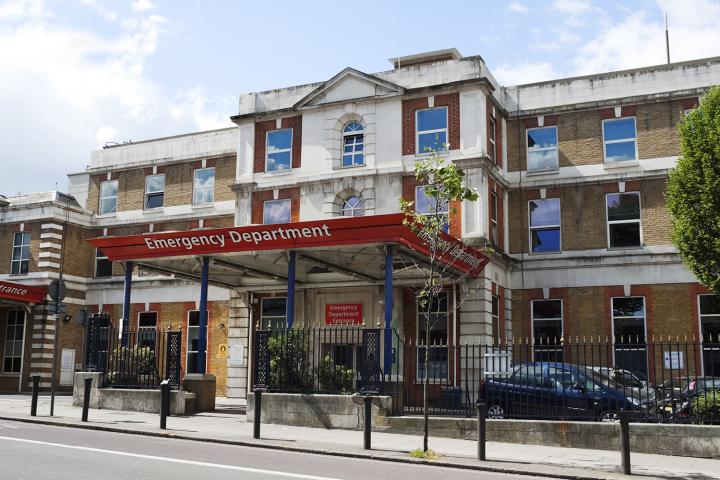
The country is incredibly proud of the effort healthcare workers are making during this time, and people have been showing appreciation in many ways. How does this make you feel?
We’re often in the background and patients often aren’t fully aware of what we do, so this recognition is a novel experience for us! People have been incredibly generous in looking after us and showing their support which has given us a real boost. I hope that we will be able to get back to normal work quickly as there is lots to be done.
For NHS workers around the country this will be a stressful time. How you do relax and look after yourself? What tips would you offer to fellow key workers?
I soon realised that WhatsApp and Twitter were winding me up and started switching my phone off after dinner so that I could relax and have some Covid-free time before bed. Try to manage your work WhatsApp groups so that there isn’t unnecessary messaging going on outside of working hours. Keeping a routine when not at work is really useful, and make sure you incorporate something into the day that you enjoy. Don’t feel that you have to be productive all the time – these are not normal times.
What advice would you give to the public to help support the NHS during the coronavirus outbreak?
Please continue to follow the official advice.
What are your hopes for the future of medicine?
I think we have realised that we can do lots of things differently during this crisis, like remote clinic appointments. I think we will take a lot of these changes forward and bring the NHS fully into the tech era.
What is the first thing you would like to do when the lockdown and social distancing measures are lifted?
Go somewhere – anywhere! I can’t wait to be able to relax with friends and family and would love to travel to Ireland to visit my parents when this is all over.
Sarah Walmsley (MBChB, 1997) is a Professor of Respiratory Medicine, Wellcome Senior Clinical Fellow, at the University and a clinician at the Royal Infirmary of Edinburgh.
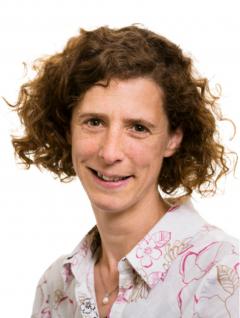
Who or what inspired you to pursue a career in medicine?
I was inspired by a desire to understand human biology and use this understanding to impact human disease.
Tell us a little about what your role involves.
As a clinical academic my research focuses on understanding how oxygen and energetics regulate the immune system and consequences for inflammatory lung diseases including ARDS (acute respiratory distress syndrome) and COPD (chronic obstructive pulmonary disease). I currently hold a Wellcome Senior Clinical Fellowship, so 80 per cent of my time is spent directing research activity and 20 per cent contributing to the acute respiratory on call rota and seeing respiratory patients in outpatient clinics. More recently, as a co-director of the Edinburgh clinical academic track programme, I also support the development of future clinical academics within my own clinical specialty, and more broadly across specialties.
What do you love about your job and why is it important to you?
I am very privileged to practice as a clinician and investigate the biological processes important for inflammation resolution in health and disease states. These are questions to which no one knows the answer, providing a great degree of academic freedom, and the opportunity to interact with scientists and clinicians from across the globe.
What are the challenges and how do you tackle these?
There are challenges in balancing clinical, research and family time. These are dynamic and allow for priorities to change as needed, for example in the current clinical crises.
How has the coronavirus pandemic had an impact on your role?
The coronavirus has had a significant impact on my daily role. I am contributing more to in patient work caring for patients with respiratory disease including those with Covid-19. The research programme I run is focusing on Covid-19 disease, while retaining social distancing of research members of staff.
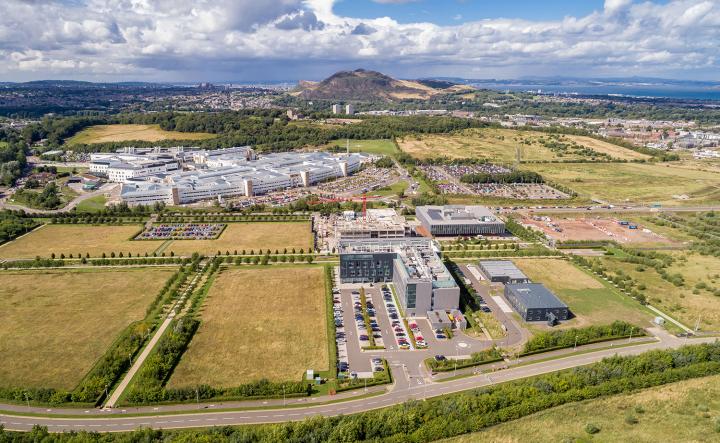
The country is incredibly proud of the effort healthcare workers are making during this time and have been showing their appreciation in many ways. How does this make you feel?
I think that I am doing my job and trying to do this to the best of my ability. We are having to practice medicine in a different way, and it is important that we remember the human cost this disease is having. I am mindful that nursing colleagues are, on a daily basis, being exposed much more than myself so that they can continue to provide excellent care in extremely challenging conditions. I am very aware that my children find it quite upsetting when I go to work in the hospital.
Watch Professor Walmlsey's message to recent graduates.
- Video: Sarah Walmsley message to medical graduates
- Sarah Walmsley message to medical graduates starting roles in the NHS during the coronavirus pandemic.
As an experienced medical practitioner, what would you say to recent medical graduates and final-year students who are graduating early to join the frontline?
I would say that they have a key role to play in overcoming Covid-19 disease from supporting clinical delivery to facilitating research. While daunting, their medical school training will stand them in good stead and they will not be left unsupported, whatever their new role may be.
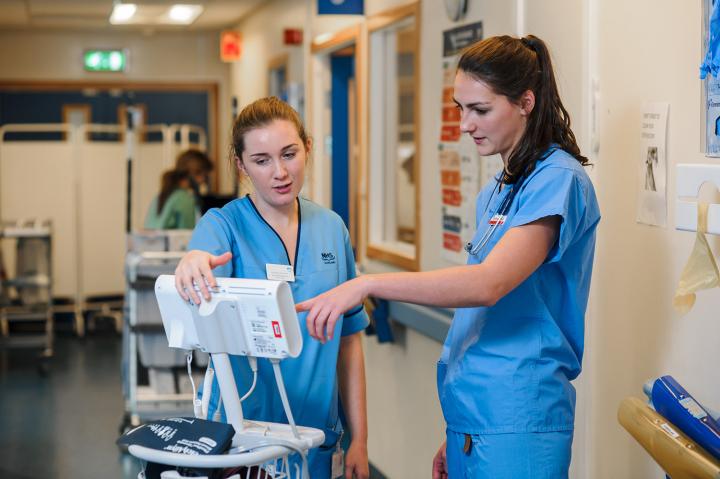
For NHS workers around the country this will be a stressful time. How you do relax and look after yourself? What tips would you offer to fellow key workers?
I spend time with my family, as much time outside in our garden and go for a bike ride or run from our door when possible.
What advice would you give to the public to help support healthcare workers during the coronavirus outbreak?
I think taking on board government advice informed by scientific and medical understanding. We have never been in this situation before, and don’t therefore have all the answers, but are trying to make the best ones possible based on the information to hand. Our individual responsibility is to care for our patients in the best way we can.
What are your hopes for the future of medicine?
I remain very hopeful. We have an amazing health care system which, despite all its faults, provides equitable free health care for all at point of need informed by scientific and clinical understanding. Continuing to support research within this setting is, in my opinion, essential to enable medicine to develop and rise to the challenges of the future.
What is the first thing you would like to do when the lockdown and social distancing measures are lifted?
Have a “non-virtual” family party.
Find out more
Read about how the University community is responding to Covid-19
Covid-19 Partnership Fund
College of Medicine and Veterinary Medicine
Images courtesy of Aidan Devlin, Getty Images/Linda Steward, Sarah Walmsley, College of Medicine & Veterinary Medicine and Callum Bennetts.

